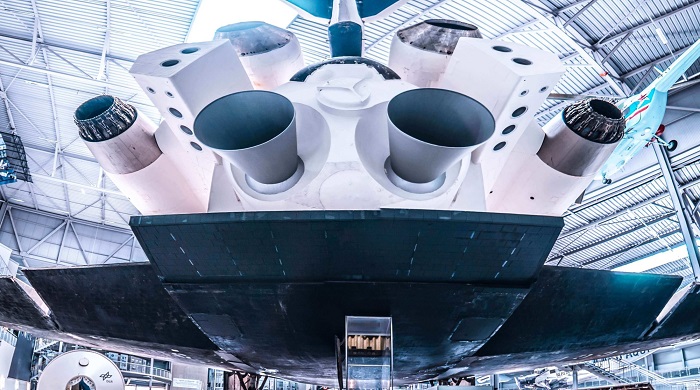Are you thinking about becoming an engineer? Engineering is the art of designing and building, and it can be broken down into six areas, encompassing everything from manufacturing to aerospace to computer software.
Engineering is behind all of the infrastructure, facilities and man-made appliances in your everyday life. Many of these things share common features but have key practical and functional differences. For example, a microwave and a washing machine are both metal boxes, with a door, buttons and an information display. Where they differ is that microwaves use radiation to provide heat energy, while washing machines use water and motion to clean clothes. The work involved in designing each of these will differ greatly and require separate skills, but they both come under the work of a mechanical engineer.
What else can a mechanical engineer do? And what other kinds of engineering are out there?
Historically, engineering was grouped into four main disciplines: civil, chemical, mechanical and electrical. As modern technology has advanced, aeronautical/aerospace engineering and computer engineering have become new fields in their own right.
This in-depth guide will break down the six fields of engineering. For those of you looking to get hands-on experience in engineering before applying to university or college, consider attending an Engineering summer course at our Oxford summer school.
1. Civil Engineering
Often considered the original field of engineering, civil engineering originated from the designing and building of general infrastructure like bridges, roads, structures and waterways.
These structures have been around for millennia and engineers have worked on these types of projects from the beginnings of civilisation. The aqueducts of ancient Rome and Greece are prime examples of this. As time progressed, the work of the civil engineer broadened to include the following types of engineering:
Architectural / Structural: For more bespoke or detailed designs of buildings or structures.
Construction: Including planning, processes, construction timelines, health and safety.
Earthquake: Relating to the earthquake-proofing of engineering projects.
Ecological: The creation and maintenance of ecosystems affected due to engineering projects.
Environment: The creation of strategies to protect and improve the environment.
Fire Protection: Ensuring compliance with fire regulations for engineering projects.
Geotechnical: The study of foundations and soil stability.
Highway / Railway: Constructing and designing highways and railways.
Hydraulic: The study of systems operated by the pressure of a fluid.
Mining: The safe and efficient extraction of underground resources.
Traffic / Transport: Creating solutions to ease traffic flows for road users and producing design ideas for other transport solutions.
Water Resource: Studying water supplies for sewage, human use and ecosystems.
Civil engineering is sometimes considered the easiest form of engineering. This is because the other disciplines formed when their work became so specific that they needed dedicated work and resources in their own right. Civil engineering is arguably the most broad and diverse field of engineering.
2. Mechanical Engineering
Mechanical engineering is a very broad discipline, dealing with the improvement and modification of mechanical components and systems through the dynamic motion of machines, fluids, heat and structures, among others.
The field of mechanical engineering originated many hundreds of years ago. The manufacturing of the wheel and the creation of furnaces to create metals and glass are some early examples. Nowadays, this discipline has expanded to include the following types of engineering:
Acoustic: Concerned with the manipulation and control of sound.
Aeronautical / Aerospace*: (see section 5).
Audio: The design of equipment and hardware often relating to the music industry.
Automotive: Design and manufacturing in the vehicle manufacturing industry.
Manufacturing: Developing, optimising and maintaining large scale machines, robotics and production lines.
Marine: Developing and operating marine vessels, overlapping with electrical engineering.
Nuclear*: Systems that utilise nuclear energy, e.g. power plants, weapons and radiation research.
Thermal: Dealing exclusively with heat energy and its transfer between different mediums and into energy.
* Some areas within mechanical engineering are becoming so advanced that they are starting to form disciplines in their own right. These are areas of particularly high demand. Continue reading for more information about aeronautical and aerospace engineering.
3. Chemical Engineering
Chemical engineering concerns the transformation of raw materials into useful, innovative products. The chemistry background allows engineers to make the most out of raw elements to create fuels, drugs and construction materials.
Often collaborating with chemists, chemical engineers take the theoretical understanding of chemists and implement it practically in everyday life. Common types of chemical engineering are:
Drilling: Focused on safety and logistics, particularly vital in the petroleum industry.
Materials: Creating useful materials from raw materials and defining their properties, for instance making paper from raw lumber and bark.
Petroleum: The processes to produce fuel for vehicles and machinery. Reservoir engineering is for extracting oil from underground wells.
Process: The actions that take a raw material and make a product or service from it, such as the development of ceramics from clay used in brickwork.
Plastics: Developing and manufacturing plastic materials.
Production: The equipment and processes used to refine oil into a usable form.
4. Electrical Engineering
Electrical engineering, the last of the four core fields of engineering, advances the fields of electricity and electromagnetism. Engineers in this field utilise the principles of electricity (relying on maths and physics) to design power grids, computer circuits, software programs, power supplies and many other things. Electrical engineers can be found working in the following areas:
Computer*: Working with computer science to develop hardware and software.
Control: Controlling the behaviour of dynamic systems using sensors to detect and software to control.
Software: The design and practical application of software.
Power: The design of large scale systems to generate, transmit and distribute electricity.
Electronics / Microelectronics: Working with small-scale systems to transmit information, working only with active components. Microelectronics includes the design of micro-chips.
Telecommunications: Focusing on devices and mediums used to transmit communications in the form of words, sounds or images.
Some people claim that electrical engineering is the hardest of the four core fields of engineering. It involves practical, theoretical and computing skills, and since it requires work at such small scales, it can be deceptively tricky.

5. Aerospace & Aeronautical Engineering
Aerospace and aeronautical engineering comes under mechanical engineering, but it deserves to be considered a field in its own right. The aerospace industry is large, complicated and very technical.
Flight and space vehicles are subject to demanding conditions of changing pressure, temperature and different structural loads. Therefore, many engineering disciplines are involved in the process of designing and building them. Avionics, materials, structural analysis and manufacturing are key examples. This field is very interdisciplinary and demands a complex overlap of skills and resources. As a result, it can be hard to source the relevant professionals. As a field of engineering in its own right, the industry is better able to manage itself.
For example, a company may have to source a chemical engineer to aid material design, which is a significant leap between industries for a chemical engineer. The alternative is to build a workforce of people who have broadly studied all the main components required by aerospace/aeronautical engineering, and who later specialise in their main interest, e.g. materials science. This means that aerospace/aeronautical engineers tend to be extremely committed to this industry and develop bespoke skill sets that apply directly to this unique field of engineering.
6. Computer Engineering
Computer engineering concerns the design and prototyping of computing hardware and software, merging the fields of electrical engineering with computer science. There is significant overlap with the skills learnt through computer science degrees and computer engineering, such as computer graphics and network security.
Where computer engineering stands out from other fields is in the design and development of microprocessor and microcontroller systems, computer architecture and VHDL (hardware description language) design. As technology becomes ever more powerful, and even smaller, the need for computer engineers will grow. This could make computer engineering the best field of engineering for the future.

By Oxford Scholastica Academy
The Oxford Scholastica Academy was founded in 2013 by Jamie and Sophie, two former University of Oxford students, who have built a dynamic education company dedicated to empowering young people to chart their path in the world and make it better.





